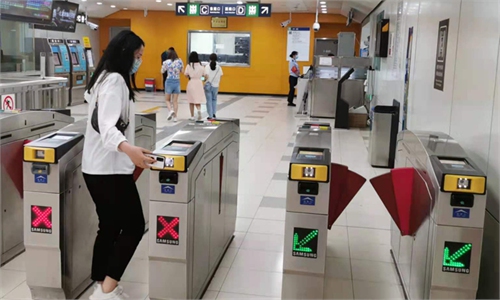
A staffer displays the digital yuan application scenarios to visitors in the World Intelligence Congress in Tianjin in May. Photo: cnsphoto
Another round of digital yuan testing will be conducted in Shanghai and Suzhou in East China's Jiangsu Province with more "red packets" containing digital yuan being distributed, marking the first time that residents of the two pilot cities in the Yangtze River Delta can participate in the testing at the same time, according to media reports.
A total of 500,000 red packets containing digital yuan worth a total of 20 million yuan ($3.09 million) will be distributed in the two cities starting from Friday, Chinese financial news site cnstock.com reported. The testing is supported by Bank of Communications as well as e-commerce giant JD.com.
It's likely that about 10 percent of applicants will win a "red packet", media reports said, based on statistics from previous trials.
An earlier round of testing in Suzhou in February distributed 150,000 red packets with as many as 1.41 million people participating. The success rate was slightly over 10 percent.
A total of 350,000 red packets were doled out during the May 5 shopping festival in Shanghai, as nearly 2 million people joined the testing, with a success rate of more than 17 percent.
Chinese authorities and commercial bodies have been promoting the use of the digital yuan. Beijing's subway system added more services that are compatible with China's digital yuan from August 1. Passengers can use digital yuan to buy tickets and all-purpose cards, and they can top up their all-purpose cards.
The first round of digital yuan-denominated insurance was issued in July in Shenzhen, South China's Guangdong Province, according to media reports.
In July, China's central bank issued a white paper on the research and development of the digital yuan, which said that the nation will expand the coverage of pilot test application scenarios based on the testing.
China will combine this work with the development plan and local characteristics in order to achieve full coverage of application scenarios and create a digital yuan ecosystem to further explore new models that are compatible with China's economy and society, the white paper said.
Global Times



